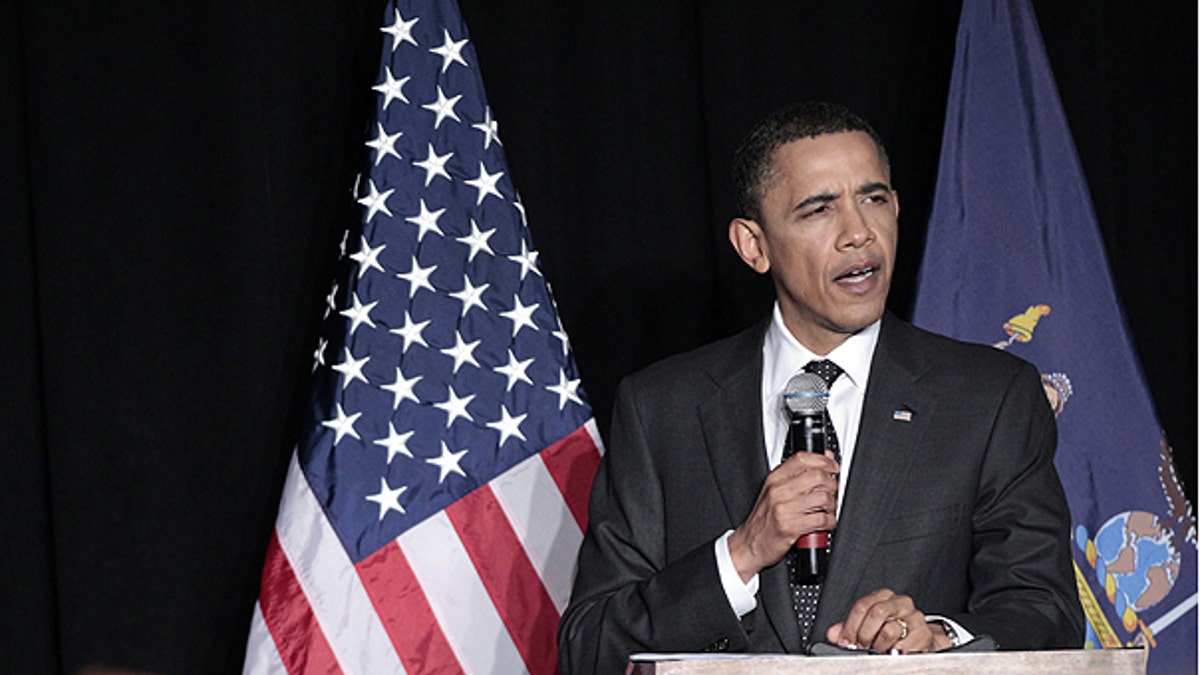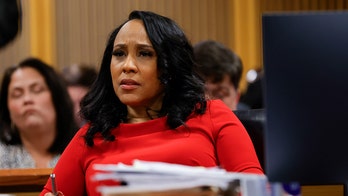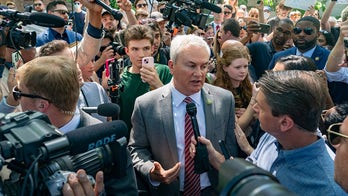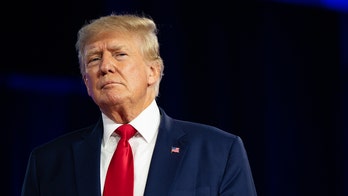
March 29: President Obama delivers remarks at a DNC fundraiser at the Studio Museum in Harlem in New York. (AP)
President Obama called Wednesday for the United States to reduce its oil imports by one-third over the next decade, pledging to expedite domestic drilling permits and boost energy-efficiency, while rejecting as political posturing claims that his administration has locked down U.S. oil wells.
Facing pressure to curb rising gas prices, Obama outlined what he called an energy security "blueprint" during a speech at Georgetown University. "In an economy that relies so heavily on oil, rising prices at the pump affect everybody," Obama said.
But he said the United States needs a long-term plan, regardless of whether gas prices are up or down. He touted oil alternatives like natural gas and biofuels, while stressing the importance of creating more fuel-efficient vehicles. He suggested young people have a "responsibility" to buy fuel-efficient cars, to ensure that market is viable for manufacturers.
"There are no quick fixes. And we will keep on being a victim to shifts in the oil market until we finally get serious about a long-term policy for a secure, affordable energy future," Obama said. "We cannot keep going from shock when gas prices go up to trance when they go back down."
Obama said he wants America to cut its oil imports by a third from the 11 million barrels a day the country was importing when he was elected.
"That is something that we can achieve," Obama said.
Senior administration officials said the president wants to offer incentives to increase the use of biofuels and natural gas, and make cars and trucks more fuel-efficient.
Obama also defended his administration's domestic oil policies, which have come under fire from lawmakers and others who claim the president has put a de facto moratorium on drilling in some parts of the country, particularly in the wake of the BP oil spill. Republicans point to the slow pace of issuing permits for new offshore oil wells and an Obama-imposed moratorium on new deepwater exploration. GOP leaders have also assailed the president for saying last week in Latin America that he wanted the U.S. to be a "major customer" for the huge oil reserves Brazil recently discovered off its coast.
"Here we've got the administration looking for just about any excuse it can find to lock up our own energy sources here at home, even as it's applauding another country's efforts to grow its own economy and create jobs by tapping into its own energy sources," Senate Minority Leader Mitch McConnell, R-Ky., said Tuesday.
But Obama said the administration has approved 39 new shallow-water permits as well as seven recent deepwater permits and is pushing for more production.
"So any claim that my administration is responsible for gas prices because we've, quote unquote, shut down oil production -- any claim like that is simply untrue. It might make for a useful political sound bite, but it doesn't track with reality," Obama said.
The administration says it still sees vast opportunities to expand on domestic oil and gas production. An Interior Department report released ahead of Obama's speech Wednesday said more than two-thirds of offshore leases in the Gulf of Mexico are sitting idle, neither producing oil and gas nor being actively explored by the companies who hold the leases. The department said those leases could potentially hold more than 11 billion barrels of oil and 50 trillion cubic feet of natural gas.
The president also reiterated his support for nuclear energy, which has come under intense scrutiny in recent weeks after an earthquake and tsunami in Japan severely damaged a nuclear power plant there.
Obama is far from the first president to set out to make the country energy-independent. U.S. presidents dating back to Richard Nixon had similar goals that achieved little success; the U.S. continues to be the world's top oil consumer and gets more than 60 percent of its oil from foreign sources.
Still, the White House is eager to show that the president understands the burden rising gasoline prices have on middle-class Americans, particularly as his re-election bid draws near. Gas prices have jumped more than 50 cents a gallon this year, due in part to a spike in oil prices amid instability in the oil-rich Middle East. Last week, gas prices averaged $3.58 a gallon nationwide, according to AAA's daily survey.
The administration officials offered few details on how Obama would turn the broad objectives he'll call for Wednesday into specific policies. They did, however, say the efforts would require increased spending on research and development. They said the speech marked a new "concerted focus" on energy policy.
Obama long has said the U.S. needs to reduce its dependency on oil -- particularly from overseas sources -- for financial, security and environmental reasons. In his State of the Union address in January, he set a goal of having 80 percent of U.S. energy come from clean sources like wind, solar and nuclear by 2035. Obama also had warmed to the notion of expanding offshore oil and natural gas exploration last year.
The Associated Press contributed to this report.




